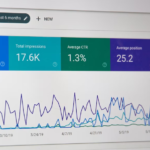With the increasing need for translation and localization globally, there are more localization service providers on the market than ever before, so chooing the right one for your needs can be quite challeging.
As a growing business, you want to rely on a localization service provider that is capable of delivering projects accurately, on time, and according to your specifications.
To aid your process of evaluating different localization service providers, we have compiled a guide with the most important tips for selecting the right localization company for your needs.
1. Focus on quality and efficiency
Existing localization processes are flawed for numerous businesses. A low-quality localization services provider may require you to jump through hoops or double down on a procedure that is not streamlined for implementation by teams.
You may already export website or app material manually or manage completed translations using spreadsheets. This increases response times by months and frequently exposes you to errors and discrepancies across platforms.
A streamlined localization process can assist in reducing translation time and accelerating time to market, both of which are crucial for a website’s or an app’s launch.
Whether you upload a new blog post every day or do an A/B test on a product page, your messaging, products, and information are continuously evolving. That’s why it’s important to find localization services that provide great quality and perform every task in a timely fashion.
Good localization service providers use advanced localization software. For example, the Phrase Localization Suite gives localization service providers and their customers full control over the localization process. With the new Phrase identity, businesses can see the brand as the go-to place for all their translation and localization needs.
2. Check their QA processes
You don’t want to entrust your translations to just anyone, which is why you are seeking a competent localization partner in the first place. However, even employing a qualified translator can sometimes lead to a translation process that is too long.
On the other hand, a translation and localization business may provide you with the choice to employ machine translation (MT). But the best option is to combine MT and human translators.
For high-quality content, you should ensure that the company you hire employs expert editors and has review systems in place. Ideally, they should use MT for bulk translations and then have editors who make sure all the linguistic nuances are conveyed perfectly.
3. Check their past work
The more familiar you and your localization service provider become with each other’s operations and requirements, the greater the value of the connection. However, it makes little financial or strategic sense to develop this type of connection if you frequently switch providers.
If stability is a factor in your RFI process, you should determine whether a localization provider is financially stable and has made investments in offering long-term solutions.
That’s why it would make sense to investigate and find out if they are financially stable. You should also check to see how long their clients stay with them and if they work on a project or a program basis.
Last but not least, check their reputation in the localization industry. See what other professionals think about the provider you are considering or have decided to negotiate with.
4. Carefully evaluate their pricing model
Price per unit is inevitably an important consideration when evaluating offers, but it is not always the most useful differentiator.
At the most fundamental level, you must ensure that you’re comparing apples to apples. Do your vendors offer machine translation with post-editing or do they price their services based on the cost of professional, experienced localization translators?
A big issue with focusing just on the cost per word is that it may not account for project management or engineering, testing, and other localization expenses. Many of these services should be priced per hour, and project management is frequently charged as a proportion of the total project cost.
5. Check your provider’s values and mission statement
Ensure that you can work effectively together, although it may be tough to determine the corporate culture of your localization provider only on the individuals processing the request for information.
To get a true feel of what it will be like to work with them, you should meet the project managers and lead production staff, with whom you will communicate daily.
Learn how these professionals communicate and what qualifications they have. Try to learn as much as you can about the concept and the processes that are used.
Final words
With all this in mind, it’s more than possible to get an accurate quote quickly and make sure your localization project and site launch go off without a hitch. But only if you plan ahead and take into account the above considerations before contacting a localization service provider.





